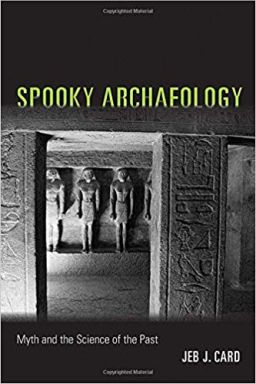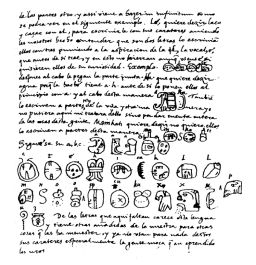Review: Spooky Archaeology: Myth and the Science of the Past by Jeb J Card.

Funny story about Mayan gifs glyphs.

Before the 1860s, Mayan glyphs were an untranslated Rorschach Test for those who wanted to find lost worlds — spiritual or physical — in pre-Columbian Mesoamerica: “Weird swirly writing style, therefore Egyptians from Atlantis who understood the Secrets of the Universe.”
Then Charles Étienne Brasseur de Bourbourg discovered a 16th-century document in a Spanish archive. It seems Spanish government officials were presumed corrupt until proven otherwise, so had to lodge a defence of their actions in office. For some reason, Diego de Landa, Archbishop of Yucatan included a bilingual alphabet in his.
The Mayan Rossetta Stone!
Brasseur rushed off to translate the Madrid Codex — a compilation of Mayan writings that had somehow survived the bonfires of the Inquisition.
Unfortunately, he didn’t realise that the Archbishop had monumentally screwed up, presumably because he was doing the Western thing of TALKING VERY LOUDLY TO THE NATIVES.
So when he said, “How do you write H?” he got back the Mayan for glyphs for… yes, you’ve guessed it, “Ah-che”. We can guess that “K” would have come back as “K-Ay” and so on. This just like in Terry Pratchett’s The Color of Magic where the places are all called things like “Big Tree” and “Your Finger You Fool,” and in Bonny Scotland where the government maps have a superfluity of “Black Lakes.”
De Brasseur heroically wrung a translation out of the Codex and was delighted to find evidence for the fiery destruction of Atlantis and the diffusion of high culture to the Americas from the West: this was a scholar whose mindscape was populated by Phoenicians in Brazil, Mayas at the Temple of Solomon, hidden meanings in colonial documents, and establishment conspiracies to cover up the quality (!) of pre-Hispanic craftsmanship.
Erk.